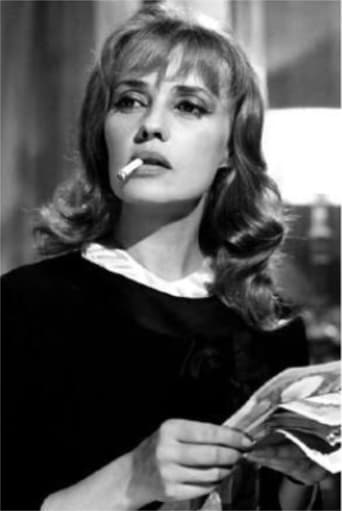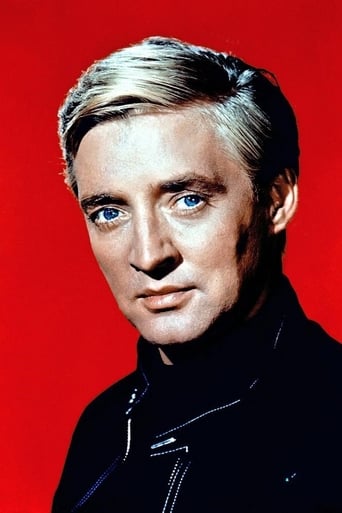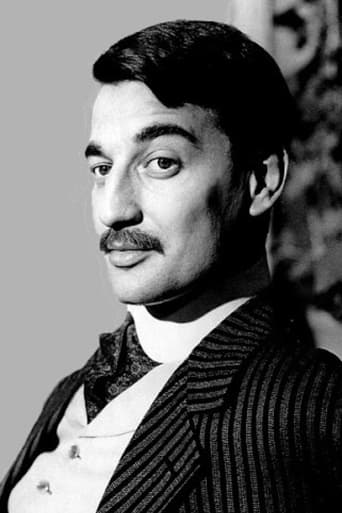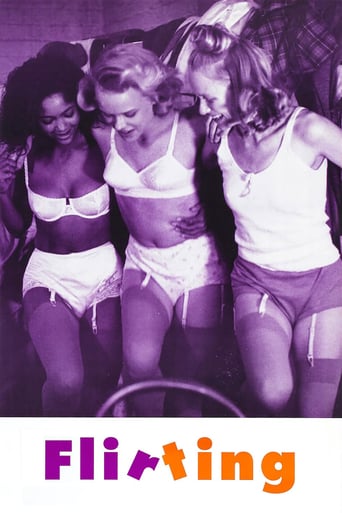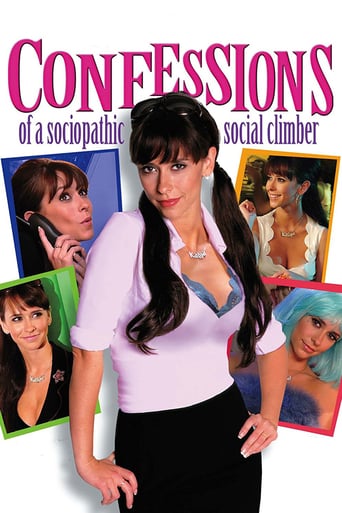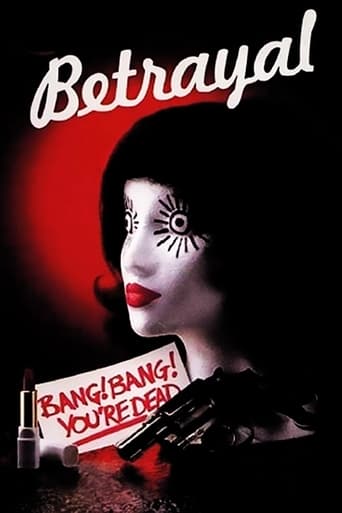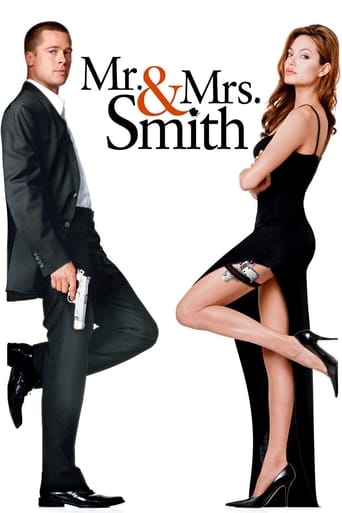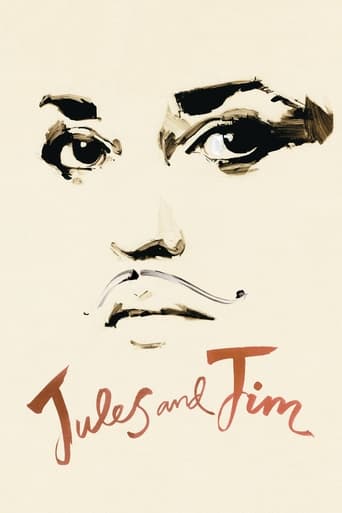
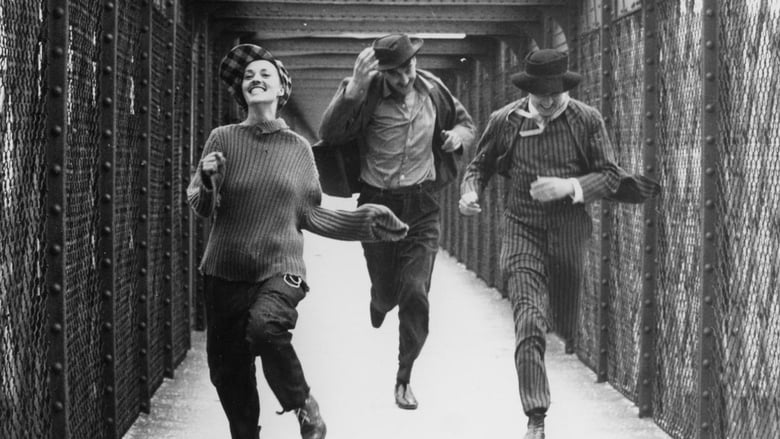
Jules and Jim (1962)
In the carefree days before World War I, introverted Austrian author Jules strikes up a friendship with the exuberant Frenchman Jim and both men fall for the impulsive and beautiful Catherine.
Watch Trailer
Cast


Similar titles
Reviews
Francois Truffaut's 1962 French New Wave classic JULES ET JIM tells the story of two pals and the woman they both fall in love with. In 1912, Jules (Oskar Werner), an Austrian living in France, strikes up a deep friendship with Parisian writer Jim (Henri Serre). The two are the best of buddies, downright inseparable. After they have each experienced a series of attempts and fiascoes with the local ladies, Jules meets Catherine (Jeanne Moreau), a vivacious and free-spirited woman, and they move back to Austria together and marry. The outbreak of World War I separates the two friends and years pass, but after the Armistice, Jim visits Jules and Catherine and finds their marriage rocky. Catherine decides to leave Jules, and she turns her affection to Jim, but this doesn't shake the two men's firm friendship.The bond between the two men, and the vivacity and ethereal nature of Catherine, make for a film initially so positive and heartwarming that it is easy to see why JULES ET JIM has won a very wide audience beyond many other French films of the mid-20th-century. The script lets Moreau, already one of the most legendary actresses of her age, show off all kinds of tricks she had long honed in the theatre.But the story increasingly takes on tragic tones, for Catherine is a deeply conflicted person, desirous of the two men by turns but ultimately unable to find happiness. In a modern Hollywood film a character like Catherine would probably be written as the "Manic Pixie Dream Girl" archetype, existing purely to show the male interests how to love life and live it to the fullest, but lacking any life of her own. In Truffaut's film, however, the depths of Catherine's psyche is what ultimately draws the plot. Yet because the film is still roughly told from the point of view of the two male characters, the film does convincingly depict the sort of relationship where you love someone and must support them through their struggles, but that person still remains ultimately unknowable.In spite of being a film of wide appeal due to its likable characters and charm, JULES ET JIM is still an exemplar of the French New Wave. It shows some relatively innovative features such as jump takes, freeze frames, and carousel-like camera work, all shot by legendary cinematographer Raoul Coutard who was also responsible for Jean-Luc Godard's films of this era. Truffaut and his peers in the French New Wave were mad about the history of film, and here we get a sort of encyclopedia of film: allusions to the silent era, use of newsreels and other archival footage, and a voice-over narrator that comes in and out.I enjoyed watching JULES ET JIM and there were some moments that I am sure I will long remember – Marie Dubois's brief supporting role as one of Jules' early love interests is laugh-out-loud funny. Yet I must admit that I was disappointed by the pacing in the last third of the film, which feels clumsy. The film also gradually abandons its New Wave freshness as the tragic part of the story takes over, and one already sees Truffaut drifting back towards conventional filmmaking. So, I personally would not include it among my top films. Still, its classic status is easy to understand and it's worth a look for any curious viewer.
Yes, Jules and Jim is a mesmerising, invigorating movie, full of life, love, happiness, sensuality, charm, and, not only that, it's French! But Truffaut's most famous film is not just ooh la la--it's an enormously sophisticated work, with a witty script and playful, daring camera work. In a way, it's THE film of the Sixties--a bit ahead of its time, for what we mean by "the Sixties" got going a few years later.But do I love it? No. Because the film also encapsulates, for me, what I so greatly disliked about the Sixties, the time in which I became an adult.The film was received with rapture, except by a few critics, including Dwight Macdonald and Stanley Kauffmann, who called it "less than meets the eye." They were denounced by Pauline Kael, queen of the hipsters, for being squares. And yet, today, who looks like the square--if by that one means someone insensitive and naive? Kael was normally clear-eyed, but, in her enthusiasm for the movie's spirit and technique, she bought a cynical fantasy, the one aimed at a young, educated, restless public.You see, in the Sixties the great thing to be was not intelligent or rich but "creative." I put it in quotes because the appearance of creativity often received the same adulation as the real thing. It was a time when the art scene started to go wild, when the business of covering yourself in paint, or whatever, and rolling on the floor was acclaimed. If you weren't genuinely creative, you had to get some way of faking it if you wanted to get respect, or laid. Women, of course, had an easy substitute for creativity. They could be selfish, capricious, inexplicably cruel or untrustworthy, and be acclaimed as their own great creation--marvelous, mysterious, incomprehensible WOMAN. (That is, of course, if they were good- looking; otherwise, someone who pulled these same stunts was just a nasty bitch.) This all happened before feminism, when it became fashionable for women to be serious, responsible grown-ups.So Catherine, in the movie, is WOMAN to the nines. But, even though she is very beautiful, she is still a nasty bitch. Surely a major aspect of WOMANliness is motherhood? Well, Catherine has a little girl who adores her, but she abandons the child for a lover (farewell scene not shown, and little girl never seen again in the movie--might it prejudice us against Catherine?). Then she abandons the lover when she is bored-- or thwarted. If she can't get her own way (even though the man is doing the right thing, or it's not his fault), someone has to pay for it.It is commonly said that suicide is an act of anger. This couldn't be more obvious in the case of Catherine, who, in the act of killing herself, drags an unwilling lover to his grave. Talk about wanting to have the last word! This is no starry Liebestod but petulance writ large.Jules and Jim may be based on a novel, but Truffaut's attraction to the material, as well as his recapitulating it twenty years later in The Woman Next Door, shows that the fantasy is very much his own. His immature, masochistic passion for this kind of woman was sad, but his presenting it to young, impressionable filmgoers as an enviable romance, with added culture (at one point they all read Goethe's Elective Affinities, also about a threesome) is wicked. The first thing about love is that it is UNselfish.
Jules et Jim was my introduction to Truffaut and I was completely blown away by it, I can't wait to watch more by him. Stephen Hawking said this was his favorite movie and I can see why. The film revolves around two best friends Jules and Jim and the enigmatic woman who captures both their hearts, Catherine. The film follows their lives for nearly a decade and a half. In the first arc of the film, it's established that while both are attracted to Catherine, she chooses Jules and Jim is a good sport is genuinely happy for his friend. Years pass and after the great war both the friends are reunited, Jules and Catherine now have a daughter but Catherine is too headstrong and adventurous of Jules, Jules actively persuades Jim to be Catherine's lover and husband so that she does not run away from his life and they can be a big happy family together, meanwhile Jim who never really got over Catherine rekindles his flame for her and she starts falling for Jim as well. As you might have guessed this is a very sexually progressive film especially for 1961. However through all this complexities, the film maintains it's infectious energy and who better to guide the viewer through this maze of emotions than these fleshed out well written characters. I found the film quite modern and "talky" it has aged very well, relevant not even today but will be so long after we are gone.
After spending April watching 30 Czech films from the Cold War era,I decided that for the next 100 days I would watch 100 French films.With April coming to the end,I started searching round for the Criterion edition of Jules & Jim,but I soon realised that I had forgotten where I've put the disc! Franticly looking round,I was happy to discover that Artificial Eye have also put a DVD version of the title out,which luckily gave me the chance to meet Jules and Jim.The plot-1912:France:Being on his own after moving from Austria to France, Jules is delighted to meet Jim,who shares Jules bohemian outlook on life.Spending time with each other,Jules and Jim begin to bond over the arts and poetry. Taking things only to a "no-strings" level with women,Jim and Jules both cross paths with a mysterious girl called Catherine,who they both fall in love with. Aware of their shared love for Catherine,Julies and Jim try to keep their friendship alive,as WWI breaks out. View on the film:Warmly welcoming Jules & Jim, Artificial Eye give the title a sharp transfer,which smoothly catches the lightning shots,and also keeps the dialogue crisp. Breezing in from Marie Dubois's wonderful mile a minute performance as Thérèse,the gorgeous Jeanne Moreau gives a marvellous performance as Catherine. Entwining Jules and Jim with a magnetic smile, Moreau strikes a precise balance of keeping Catherine's alluring charms alight whilst making her frivolous outlook more brittle.Working in Comedy clubs when he was cast, Henri Serre gives a superb performance as Jim.Swaggering around the opening brimming with confidence, Serre vividly peels away Jim's charisma to reveal a sincere friendship with Jules,and an inability to look away from the flames of his love for Catherine.Enter as an outsider, Oskar Werner gives a great performance as Jules,whose nervous stance tightens the bond of friendship he has with Jim,and also pulls Jules to the care- free grin of Catherine.Spanning the WWI period,co-writer/(along with Jean Gruault) director François Truffaut adaptation of Henri-Pierre Roché's novel places the passage of time firmly on the shoulders of the trio,with their care-free and bohemian outlooks struggling to survive the abrasive twists and turns that Catherine grinds Jim and Jules friendship with.Whilst there are some large areas of plot that get brushed away, (does no one care about the kid?!) Gruault and Truffaut treat the friendship between Jules and Jim with a brilliant level of care and affection,as Jules and Jim try to find ways to keep their connection,despite being well aware that they share a love for the same girl.Rolling out on a very low budget, (Moreau had to help fund the completion of production)director Truffaut and cinematographer Raoul Coutard roll out the friendship between Jules,Jim and Catherine in a dazzling,ultra-stylised shine. Soaking the screen in pure French New Wave with freeze frames and "masking", Truffaut elegantly explores the various stages of Jules and Jim's friendship,as the initial excitement around each other sets off whip-smart panning shots and slick screen wipes,which transforms into smoothly-hit tracking shots and ghostly overlapping images,as Jules,Jims and Catherine's friendship reaches breaking point.


